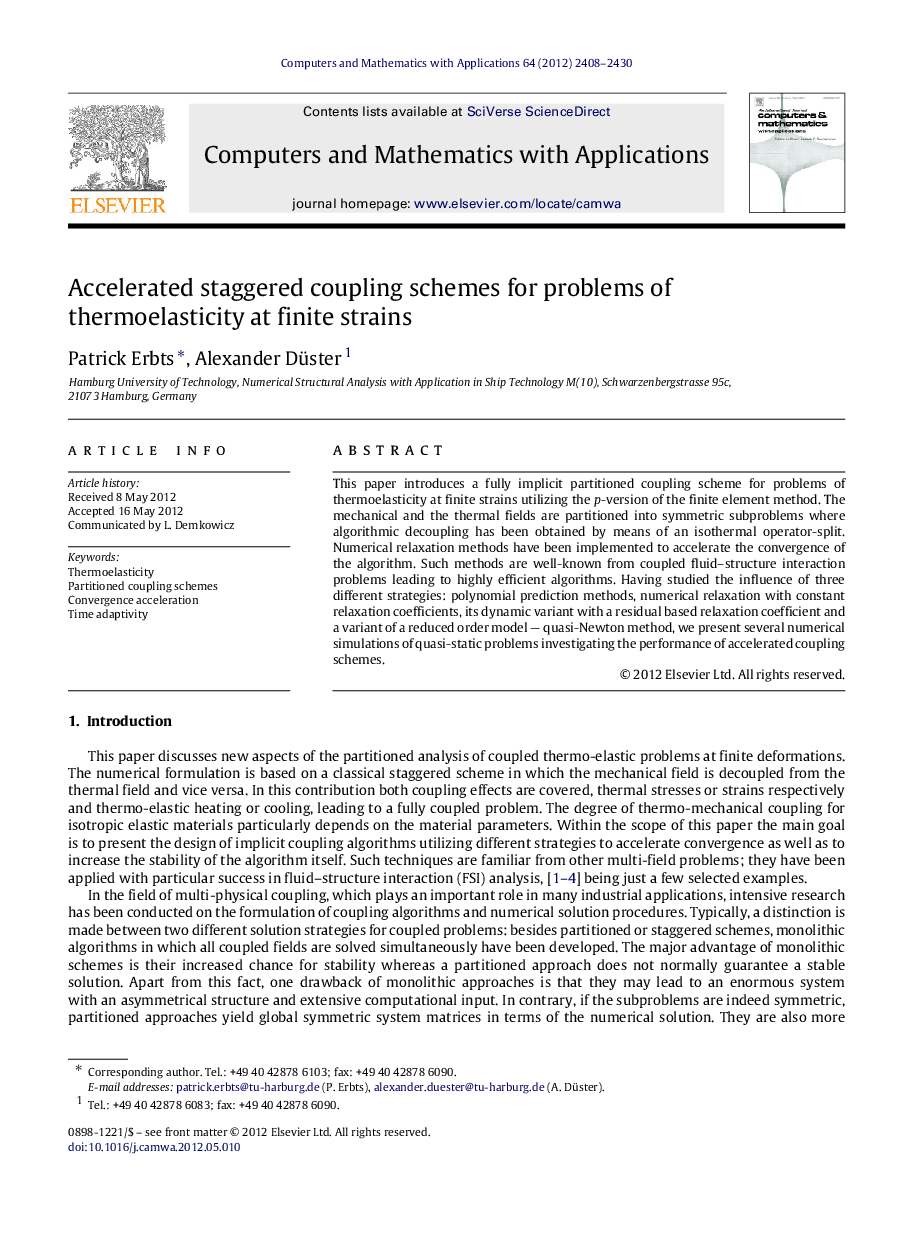| Article ID | Journal | Published Year | Pages | File Type |
|---|---|---|---|---|
| 468432 | Computers & Mathematics with Applications | 2012 | 23 Pages |
This paper introduces a fully implicit partitioned coupling scheme for problems of thermoelasticity at finite strains utilizing the pp-version of the finite element method. The mechanical and the thermal fields are partitioned into symmetric subproblems where algorithmic decoupling has been obtained by means of an isothermal operator-split. Numerical relaxation methods have been implemented to accelerate the convergence of the algorithm. Such methods are well-known from coupled fluid–structure interaction problems leading to highly efficient algorithms. Having studied the influence of three different strategies: polynomial prediction methods, numerical relaxation with constant relaxation coefficients, its dynamic variant with a residual based relaxation coefficient and a variant of a reduced order model — quasi-Newton method, we present several numerical simulations of quasi-static problems investigating the performance of accelerated coupling schemes.
